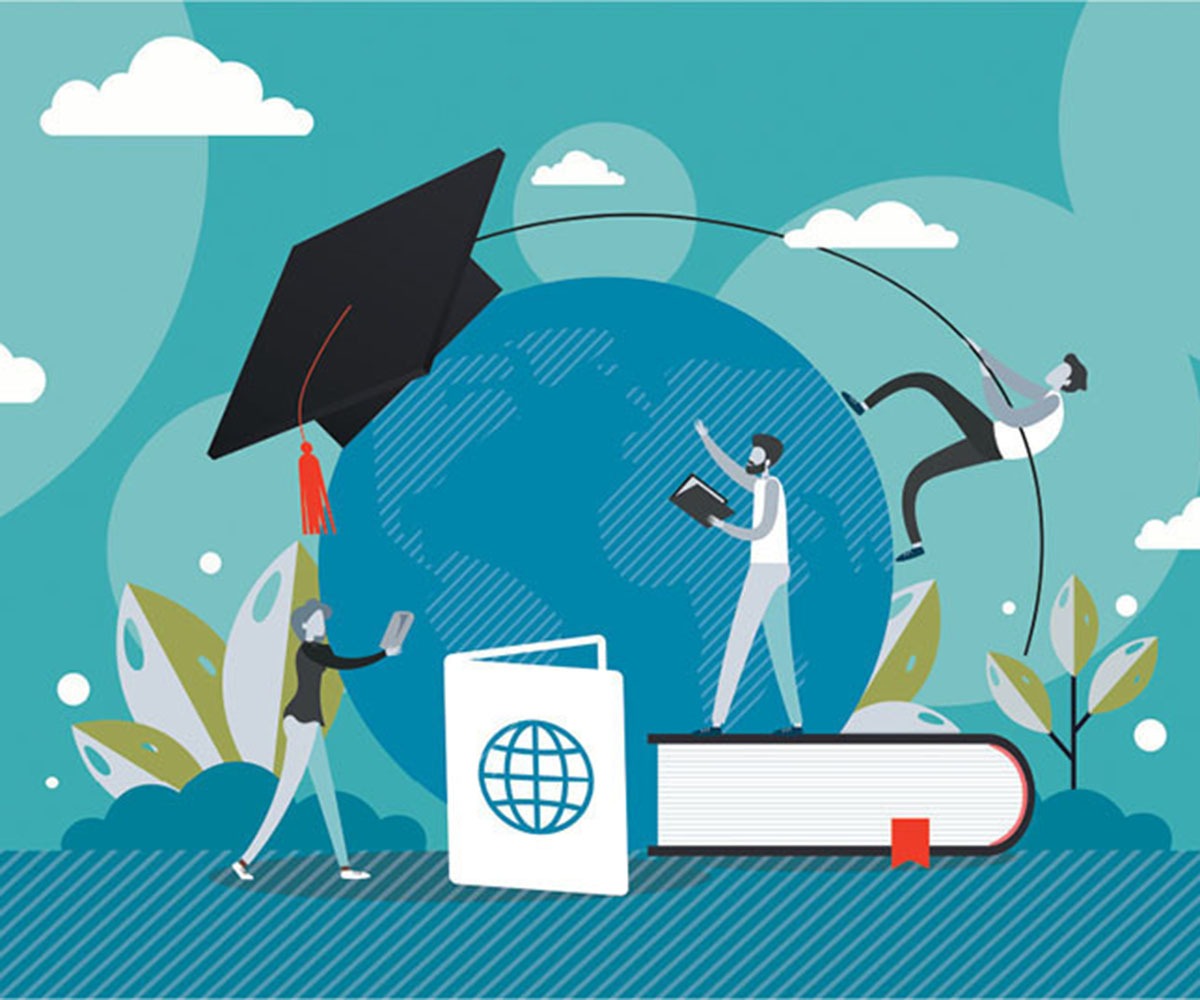Dr. Sabine C. Klahr, Associate Chief Global Officer, recently had the article below published in the fall 2021 issue of IIENetworker–a professional magazine published by the Institute of International Education.
The pandemic has presented many challenges and shifts in priorities for leaders in international education (IE). Even as COVID-19 regulations have eased, countries are opening to visitors, and limited international travel is resuming, the uncertainties for IE continue. In addition to responding to a constantly changing global environment during the pandemic, senior international officers (SIOs) have had to ensure the resilience of their teams, including their ability to pivot with each new challenge and uncertainty. This focus on resilience continues. Despite a sense that the end of the pandemic is near in many locations, infections are at record levels in some countries while the delta variant and the unvaccinated pose new threats in locations where new infections had significantly decreased. Navigating these conflicting realities and other developments that emerged during the pandemic will lead to long-term priority changes for SIOs.
In the future, how will IE leaders proceed to build resilience? It seems reasonable to predict that they will be more deeply engaged in the well-being of their team members with regards to flexible work environments. Supporting team members with their preferences for remote work, flexible schedules, and mental/emotional health will be more important than ever. Due to the pandemic, employees in all industries have experienced shifts in priorities and preferences in their work environments and feel empowered to demand changes or change jobs. This is also the case in higher education. IE leaders will be more deeply engaged in hiring, redefining positions and their organizational structures, and strategic planning focused on creating work environments that enhance job satisfaction.
The pandemic took everyone by surprise, but moving forward leaders will better anticipate crises that can significantly impact their work and operations. They will be better prepared by integrating approaches and processes that allow for more flexibility and adaptability to quickly pivot and implement changes, secure the resources to do so, and cross-train team members to put more staff effort toward critical tasks during times of crisis. The global risk management capabilities of universities were thoroughly tested during the pandemic and, consequently, SIOs will be shoring up the infrastructure and staffing in this regard.
The integration of virtual technology will continue as the world resumes in-person interactions, allowing for greater access and flexibility. This hybrid approach will change the daily operations of an international office, global learning, and collaborations with partners around the world. Virtual exchange was already gaining momentum prior to the pandemic to provide broader access to global learning. SIOs will increase their focus on expanding virtual exchange on their campuses as a means to integrate global education in the curriculum, increase access for students, engage more faculty in global education, and empower more students to study or intern abroad. Wide acceptance of virtual meeting technology will also help leaders lessen the impact of their work on climate change as fewer meetings will necessitate air travel.
The global reaction to the murder of George Floyd as well as inequities exposed during the pandemic resulted in a heightened commitment to diversity, equity, and inclusion (DEI). Although IE and DEI have always been closely connected, there is a renewed effort by IE leaders to collaborate with chief diversity officers and align with DEI initiatives on their campuses. Looking to the future, SIOs will more heavily focus on ensuring that DEI support structures include international students and scholars, invest in efforts to increase access to education abroad, develop international partnerships aligned with DEI principles, and focus on DEI issues within their offices.
Now is the time, more than ever, for SIOs to urge institutional leaders to prioritize internationalization and support a robust hub for the institution’s global operations. The pandemic has demonstrated the absolute need for multidisciplinary international collaboration to address global crises, whether it is focused on local or global impacts. Consequently, the support an international office can provide in this regard is essential for institutions to fully engage in research, training, and with global agencies and bodies to advance multidisciplinary scholarly activities in collaboration with researchers around the world. Now is the ideal time for a fresh approach to making the case to university leaders that a strong global infrastructure and organization directly supports the institutional mission and, thereby, the success and resilience of the institution.
As the uncertainties of the pandemic continue, the priorities of IE leaders will focus on building long-term resilience that will include a deeper emphasis on employee well-being and job satisfaction as well as resources and training to quickly respond to changes. There will be a greater focus on using virtual technology across all IE functions, which will provide broader access to global education. Integrating DEI best practices will be critical for advancing internationalization. While the impact of the pandemic is still fresh in institutional leaders’ minds, the current time is ideal for SIOs to secure more resources for chronically underfunded IE offices by making the case to upper administration that a robust global operation supports institutional resilience.
REFERENCE:
- Cox, J. (2021, July 25). Why Worker Loyalty is at a Breaking Point.BBC News Worklife. https://www.bbc.com/worklife/article/20210721-why-worker-loyalty-is-at-a-breaking-point

